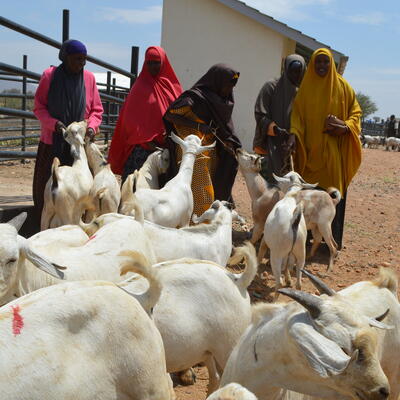
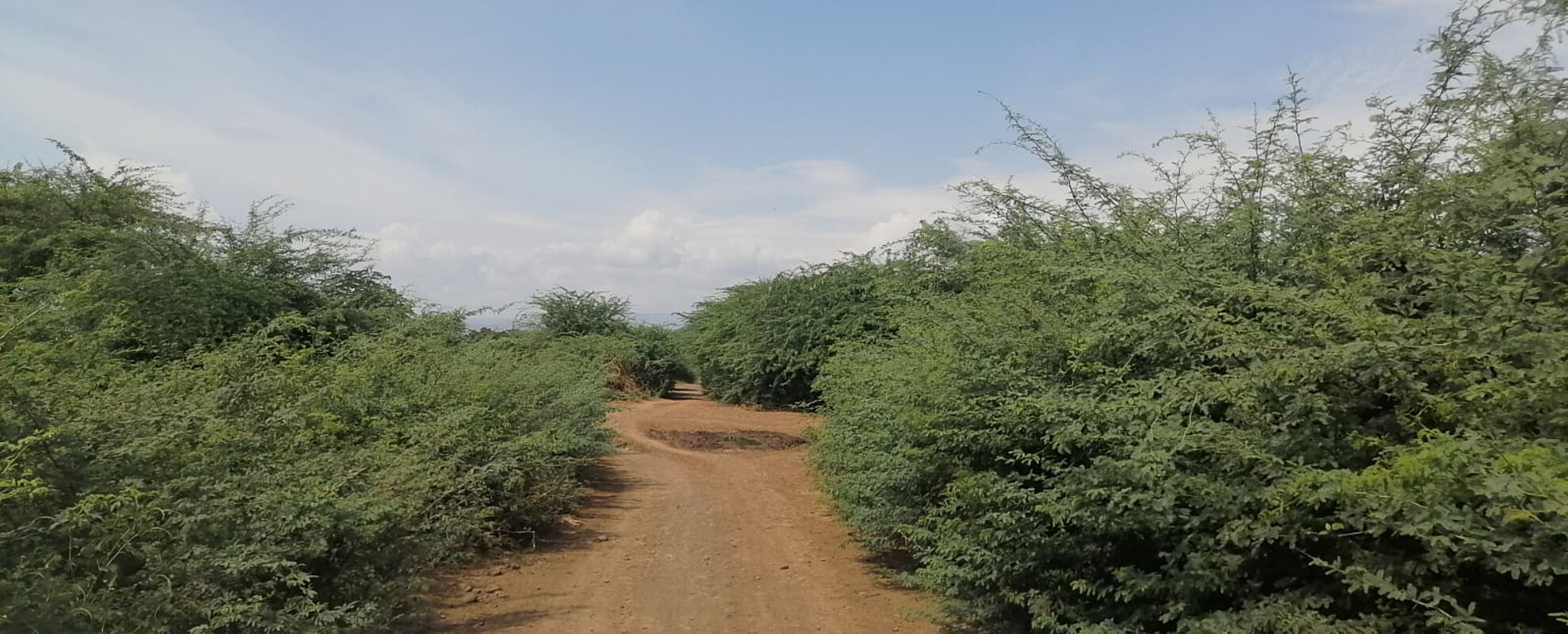
Can artificial intelligence and space technology transform livestock insurance and rangeland management?
A new study shows that artificial intelligence (AI) could improve the accuracy of index-based livestock insurance (IBLI) satellite assessments in regions affected by invasive plant species.
IBLI provides coverage for livestock keepers against drought, with payouts triggered when a specific region reaches a predetermined drought threshold. This threshold is calculated based on vegetation and forage scarcity, which is monitored using satellite imagery.
Whereas traditional field surveys are effective for assessing forage conditions, they are often time-consuming and costly. As a result, there has been a significant shift towards using satellite remote sensing to monitor vegetation and forage conditions more efficiently.
However, invasive plants species which are resistant to drought and which outcompete local plants can make monitoring less clear.
"When monitoring forage cover from space, presence of invasive species like Prosopis juliflora can create a false impression of healthy undergrowth, leading to an overestimation of forage quality and quantity. This misrepresentation can impact rangeland management decisions and insurance payouts," says Ambica Paliwal, senior scientist at the International Livestock Research Institute (ILRI).
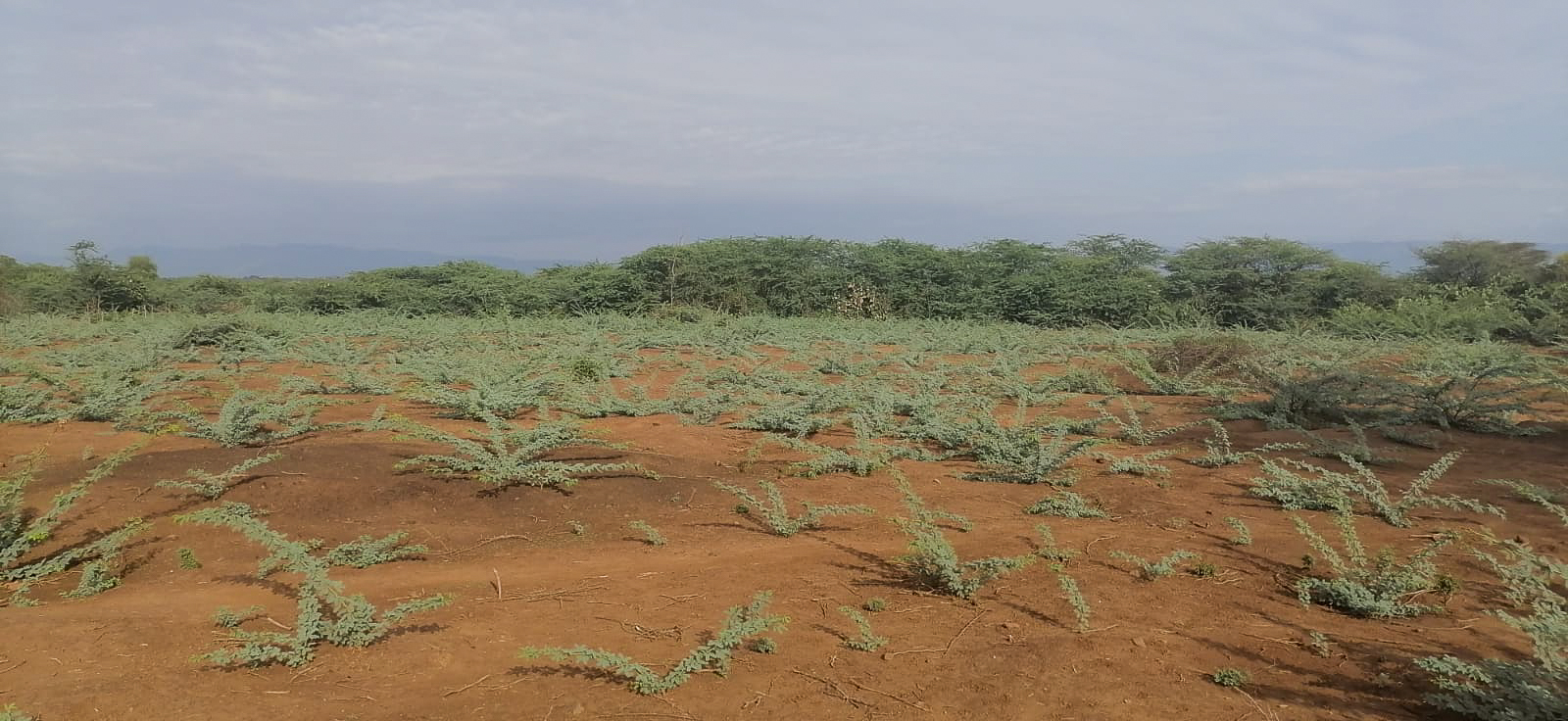
Growing P. juliflora plants
To enhance the accuracy of remote sensing, data scientists from ILRI conducted a study exploring the potential of machine learning algorithms to detect P. juliflora in Kenya's rangelands. Machine learning models are a type of AI that learn from data inputs to identify patterns.
The study used satellite imagery alongside other environmental variables, and integrated local community insights. It examined the effectiveness of three machine learning models—random forest, support vector machine, and neural network—to identify the most critical variables for distinguishing P. juliflora from surrounding vegetation.
The study highlighted that factors such as land cover classifications, elevation, and monthly diurnal temperature variations, significantly contributed to accurate identification of invasive species.
AI and environmental management
The findings demonstrate the powerful potential of AI in managing complex ecological data, especially in ecosystems where environmental variability and species interactions pose significant analytical challenges.
ILRI's study advocates for the integration of technological innovations into environmental management strategies. By adopting such multidisciplinary approaches, society can better address the challenges posed by P. juliflora and other invasive species, protect ecosystem health and biodiversity, and improve the livelihoods of communities that rely on these rangelands. Moreover, these innovations can enhance the accuracy of vegetation monitoring and services like rangeland management and IBLI.
Other findings
The study found that while the negative aspects of P. juliflora, which was introduced in the 1880s, were clear, a segment of the community found the plant provided some benefits.
“Prosopis is an alternative protein source for livestock, it provides timber, shade, and fuelwood, acts as a windbreak for erosion control, and contributes to soil and water conservation as well as reforestation of arid lands. However, it is also outcompeting native vegetation and invading grazing areas, causing forage loss,” stated by a community member from Marigat ward in Baringo county.
Read the study here.
Acknowledgement
This activity was conducted under the CGIAR Livestock and Climate Initiative and was also supported by the CGIAR Digital Innovation Initiative. The activity was funded through the CGIAR Trust Fund.
You may also like
Related Publications

Impact of index insurance on downside income risk: Evidence from northern Kenya
- Shikuku, Kelvin Mashisia
- Ochenje, Ibrahim
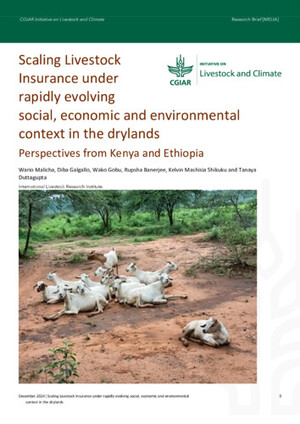
Scaling Livestock Insurance under rapidly evolving social, economic and environmental context in the drylands: Perspectives from Kenya and Ethiopia
- Malicha, Wario
- Galgallo, Diba
- Gobu, Wako
- Banerjee, Rupsha R.
- Shikuku, Kelvin Mashisia
- DuttaGupta, Tanaya
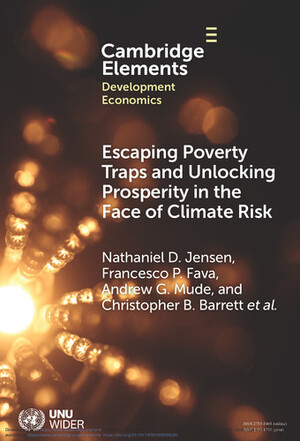
Escaping poverty traps and unlocking prosperity in the face of climate risk: Lessons from Index-Based Livestock Insurance
- Jensen, Nathaniel D.
- Fava, Francesco P.
- Mude, Andrew G.
- Barrett, Christopher B.
- Wandera-Gache, Brenda
- Vrieling, Anton
- Taye, Masresha
- Takahashi, Kazushi
- Lung, Felix
- Ikegami, Munenobu
- Ericksen, Polly J.
- Chelanga, Philemon
- Chantarat, Sommarat
- Carter, Michael
- Bashir, Hassan
- Banerjee, Rupsha R.

The role of heterogenous implementation on the uptake and long-term diffusion of agricultural insurance in a pastoral context
- Jensen, Nathaniel D.
- Teufel, Nils
- Banerjee, Rupsha R.
- Galgallo, Diba
- Shikuku, Kelvin Mashisia

Climate risk management solutions for enhanced resilience in the drylands : Innovative financial schemes and decision support tools can be effective risk reducing measures for vulnerable populations in the drylands
- Banerjee, Rupsha R.
- Shikuku, Kelvin Mashisia
- Paliwal, Ambica
- Whitbread, Anthony M.
- Wane, Abdrarahmane
- Worou, Nadine





